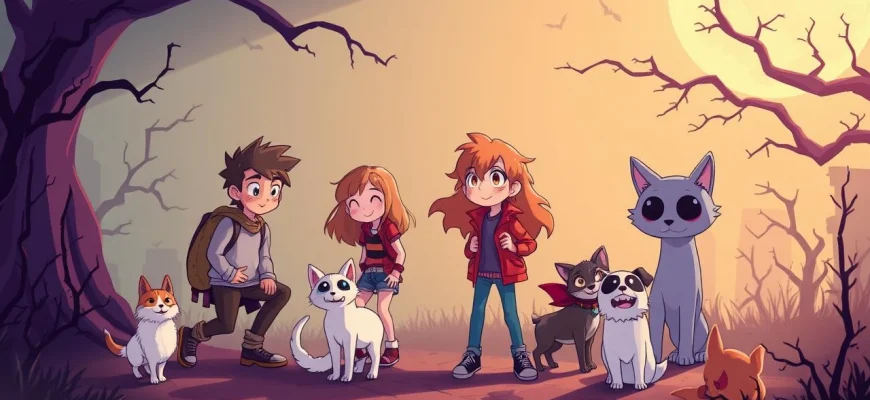If you're a fan of 'Scooby-Doo! Mystery Incorporated' (2010), you're probably craving more shows that blend mystery, humor, and a touch of the supernatural. This article is your ultimate guide to 10 similar movies and TV shows that capture the same thrilling yet fun vibe. Whether you love the gang's dynamic, the clever whodunits, or the spooky settings, we've got recommendations that will keep you entertained and on the edge of your seat. Dive in and discover your next favorite mystery series!
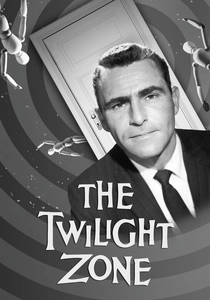
The Twilight Zone (1959)
Description: While more serious in tone, The Twilight Zone shares Scooby-Doo's anthology-like structure of standalone mysteries with twist endings. Both explore the strange and unexplained, often with moral lessons. Mystery Incorporated's more surreal episodes owe much to The Twilight Zone's influence.
Fact: Rod Serling wrote 92 of the 156 episodes himself. The iconic theme music was created using a single guitar and a studio echo chamber. The show was almost called 'The Way Out' before Serling settled on 'The Twilight Zone.'
 Watch Now
Watch Now 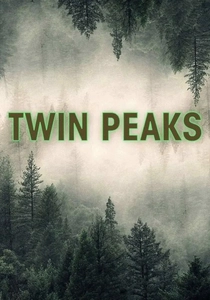
Twin Peaks (1990)
Description: Twin Peaks shares Mystery Incorporated's small-town-with-dark-secrets premise. Both feature quirky characters, supernatural elements beneath a seemingly normal surface, and a central mystery (Laura Palmer's murder/Crystal Cove's curse). The surreal tone of later Twin Peaks episodes matches Mystery Inc.'s weirder moments.
Fact: David Lynch based the town on his childhood memories of Washington state. The iconic Red Room scenes were filmed backward and reversed in editing. Kyle MacLachlan (Agent Cooper) was cast after Lynch saw him in Dune.
 Watch Now
Watch Now 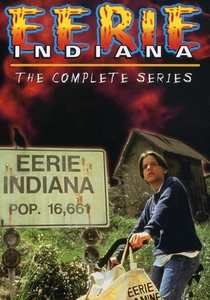
Eerie, Indiana (1991)
Description: This cult classic shares Mystery Incorporated's premise of kids investigating weird occurrences in their seemingly normal town. Both blend humor with horror-lite, featuring bizarre townsfolk and supernatural phenomena. The nostalgic 90s aesthetic matches Mystery Inc.'s retro vibe.
Fact: The show was created by José Rivera, who later wrote the Oscar-nominated The Motorcycle Diaries. Only 19 episodes were made before cancellation. A failed revival, Eerie, Indiana: The Other Dimension, aired in
 Watch Now
Watch Now 
The X-Files (1993)
Description: Like Scooby-Doo! Mystery Incorporated, The X-Files revolves around solving supernatural mysteries with a mix of horror, humor, and investigative teamwork. Both series feature episodic mysteries with an overarching plot, blending the paranormal with detective work. The dynamic between Mulder and Scully mirrors the camaraderie of the Mystery Inc. gang.
Fact: The X-Files was inspired by real-life UFO sightings and government conspiracy theories. The show's iconic theme music was composed by Mark Snow in under an hour. David Duchovny (Mulder) initially auditioned for the role of Scully's partner, who was originally written as a man named 'Bambi.'
 Watch Now
Watch Now 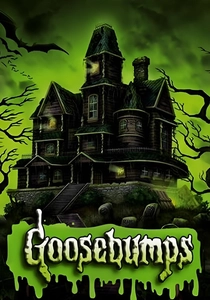
Goosebumps (1995)
Description: Like Scooby-Doo! Mystery Incorporated, Goosebumps features kids encountering and overcoming supernatural threats, often with humor and clever solutions. Both are gateway horror for younger audiences, mixing scares with adventure. The episodic structure mirrors Mystery Inc.'s case-of-the-week format.
Fact: R.L. Stine wrote all the original book series himself. The iconic theme song was performed by the same group that did the Power Rangers theme. Some episodes were banned in certain countries for being too scary for children.
 Watch Now
Watch Now 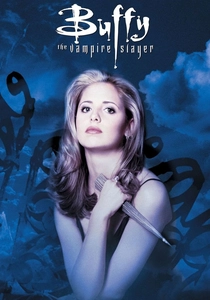
Buffy the Vampire Slayer (1997)
Description: Buffy, like Scooby-Doo! Mystery Incorporated, combines teenage drama with monster hunting. Both feature a core group of friends solving supernatural mysteries in their town, with witty dialogue and character growth. The Hellmouth's constant weirdness parallels Crystal Cove's cursed history.
Fact: The show's creator, Joss Whedon, based the concept on his high school experiences. The library set was reused from another show and still had the previous show's name on some books. Sarah Michelle Gellar (Buffy) was allergic to the glycerin used for fake tears.
 Watch Now
Watch Now 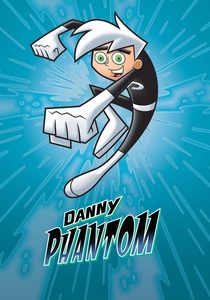
Danny Phantom (2004)
Description: Danny Phantom shares Mystery Incorporated's teen protagonist dealing with supernatural phenomena in his hometown. Both feature a balance of action, comedy, and character growth, with Danny's ghost-hunting mirroring the gang's mystery-solving. The show's mix of sci-fi and fantasy elements parallels Mystery Inc.'s varied threats.
Fact: Butch Hartman created the show after dreaming about a half-ghost boy. Danny's catchphrase 'Going ghost!' was ad-libbed by voice actor David Kaufman. The show was originally going to be called 'Danny Phantom: Ghost Hunter.'
 Watch Now
Watch Now 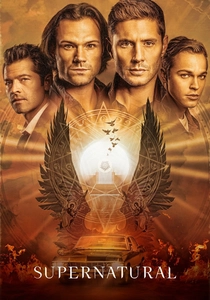
Supernatural (2005)
Description: Supernatural shares Scooby-Doo! Mystery Incorporated's blend of monster-of-the-week episodes and a larger mytharc. Both shows feature brothers (or friends) solving supernatural cases with a mix of horror and humor, often referencing classic monsters and urban legends. The road-trip aspect mirrors Mystery Inc.'s travels.
Fact: The Impala used in the show is a 1967 Chevrolet Impala, which the producers bought for $Jensen Ackles (Dean) originally auditioned for the role of Sam. The show was almost canceled after its first season due to low ratings.
 Watch Now
Watch Now 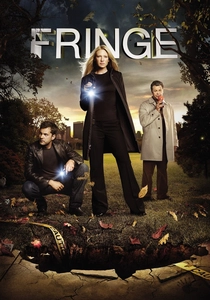
Fringe (2008)
Description: Fringe combines paranormal investigation with science fiction, similar to how Mystery Incorporated blends supernatural and scientific explanations. Both feature a team solving bizarre cases, with Walter Bishop's eccentricity matching Shaggy and Scooby's antics. The parallel universes theme echoes Mystery Inc.'s alternate timelines.
Fact: John Noble (Walter) based his performance on his father's dementia. The Observer characters were originally meant to appear only in the pilot. The show used real scientific concepts, consulting with MIT physicists.
 Watch Now
Watch Now 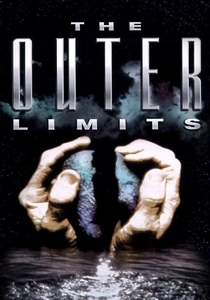
The Outer Limits (1995)
Description: This anthology series shares Scooby-Doo's format of standalone supernatural/sci-fi stories, often with twist endings. Both explore 'what if' scenarios about monsters and the unknown. The 90s revival's darker tone matches Mystery Incorporated's more serious moments.
Fact: The original 1960s series was created to compete with The Twilight Zone. Each episode begins with the iconic 'There is nothing wrong with your television set...' monologue. Many episodes were written by sci-fi authors like Harlan Ellison.
 Watch Now
Watch Now 
